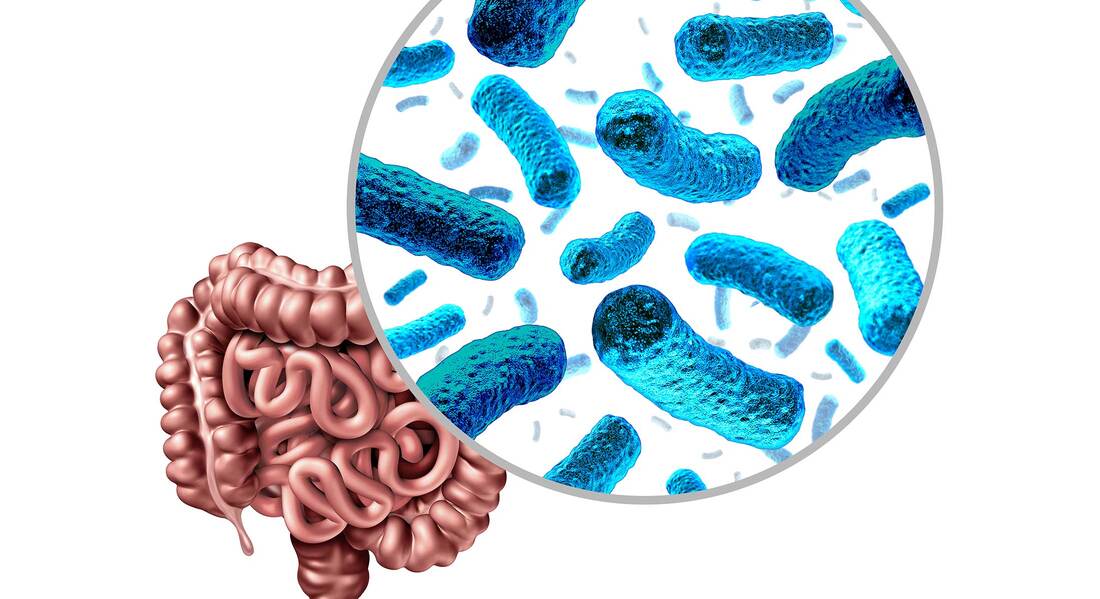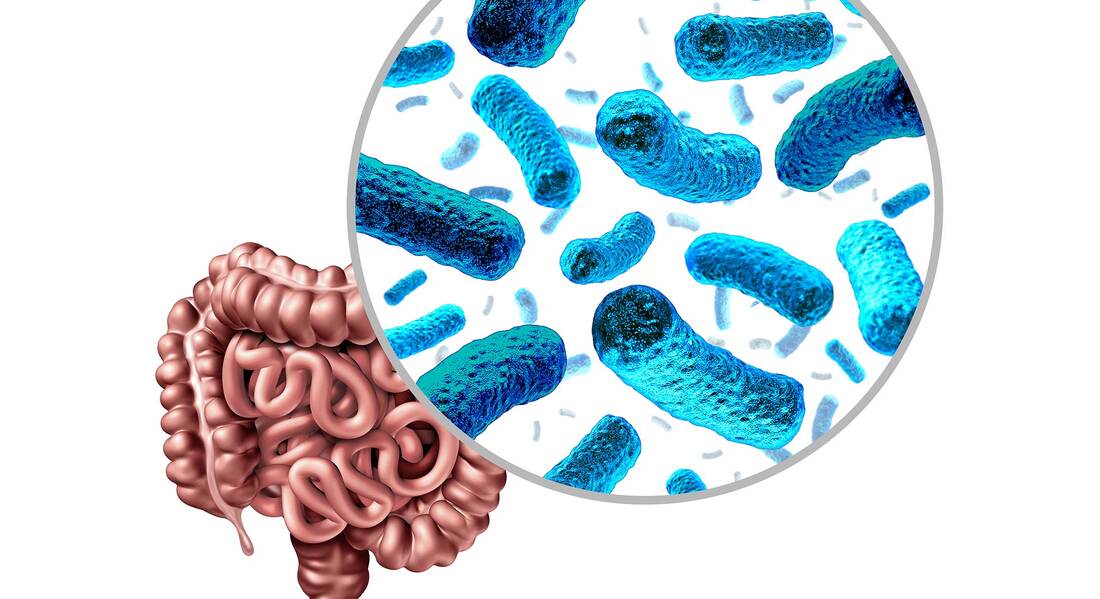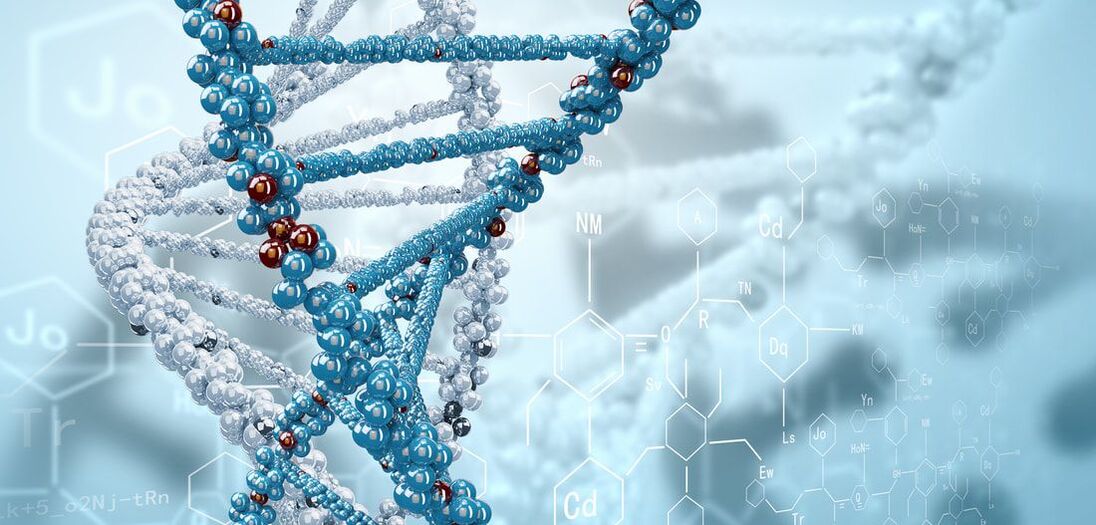|
Methylation is a reaction in which a methyl group (CH3) is attached to another molecule.
We be healthy and well, it is vital that we are able to methylate efficiently. Methylation is responsible for:
In order to support healthy methylation, we need a DNA test that looks at the entire methylation cycle. This gives us all the current information on where we need to intervene (if at all). Gut Health - Microbiome 101Did you know that there's a whole world of microorganisms residing in your gut? The term used to describe this vast, yet microscopic community is 'microbiome' or 'microbiota' which collectively refers to all the microbes - including bacteria, viruses and fungi - that exist in and on the human body. A whooping 95% of these microbes reside in your gastrointestinal tract, predominantly in the large intestine.
To put this population into perspective, there are ten times more bacterial cells in your body (40 trillion), specifically contained in your gut, as opposed to human cells (only 30 trillion) - meaning, you're more bacteria than human! Diving deeper into the gut microbiota, there are around 1,000 different species of known bacteria, each playing a different role in your body - but only a couple of hundred predominate. The collective weight of these bacteria can be up to 2 kilograms. The composition of the colony in your gut is as unique as your fingerprint. One third of gut bacteria is common to most people, while the other two thirds are individual to you. While some strains of bacteria are harmful, many others are extremely beneficial and necessary to keep your body healthy. When the number of harmful bacteria outweighs the number of friendly bacteria in the gut, an imbalance called dysbiosis can occur. So, it makes sense that in order to be at your healthiest, you need to ensure that your good bacteria are kept happy, healthy and as abundant as possible. The gut microbiota is a complex field of ongoing research in the medical community and is constantly under the microscope. Findings uncovered by new scientific investigations have greatly improved our understanding of the microbiota, and its systemic influence in the body. Studies have explored and identified links between gut health and the immune system, mental health, autoimmune diseases, endocrine disorders, weight, skin conditions and even cancer. Poor gut health not only relates to digestive discomfort, but can also restrict essential energy and nutrient supply to other bodily organs and systems, compromising their function. For example, the gut houses 70-80% of your immune system, so this can take a hit when the gut isn't performing properly, Essentially, the gut microbiota acts like another organ in your body, regulating health and disease. Reproduced from The Good Gut Guide, Orthoplex. Vanessa Winter BHSc (High Dist.), BEd, Dip.Nat., Dip.Herb.Med., NMHNZ SmartGENES Naturopathic Clinic As Naturopathy in New Zealand is unregulated (meaning anyone can call themselves a Naturopath), we recommend a simple measure to ensure your safety and wellbeing.
The industry itself has put in place stringent standards for your safety. Naturopaths and Medical Herbalists of NZ (NMHNZ) is an organisation that only accepts members who meet the highest educational standards and who continue professional education on a yearly basis. So make sure your Naturopath or Medical Herbalist is registered with NMHNZ. This means you are assured of a highly qualified health care professional. Commonly referred to as "leaky gut", Intestinal permeability can be measured using the lactulose/mannitol recovery test.
The test involves taking a drink that contains two water-soluble sugars that do not get metabolised by humans. If absorbed into the bloodstream via the gut, they are excreted into the urine, which is collected and tested. This is a simple urine test that also gives an insight into malabsorption issues. There are quite a number of functional testing options available for gut health. It is highly recommended that you get in touch to discuss if this is the right test for you. Vanessa Winter BHSc (High Dist.), BEd, Dip.Nat., Dip.Herb.Med., NMHNZ SmartGENES Naturopathic Clinic Acid Reflux is a condition in which the acid contents of your stomach wash back up into the oesphagus. This happens because a valve at the end of your oesophagus does not close properly when food arrives into the stomach. The acid then flows back upwards into your throat. Acid reflux happens to many people at some point. Pregnancy is a time when a lot of women will experience reflux due to the pressure in the abdomen, which will mostly self resolve post partum. However, for many, regular episodes of acid reflux is the first sign of an under-functioning digestive system. GORD/GERD (gastroesophageal reflux disease) is a related but more serious condition in which the acid contents of the stomach persistently regurgitate back up into the oesophagus. As the development of GORD is often multifactorial, identifying the key contributing factors is necessary to address and improve gut function, and reflux symptoms. Mechanisms that are associated with GORD include: Lower oesophageal sphincter dysfunction, oesophageal clearance, mucosal resistance, delayed gastric emptying, and the presence of a hiatal hernia or acid pocket. Generally diagnosis is made through clinical symptoms and the response to acid suppressing medications, and diagnostic tests such as upper endoscopy. From a naturopathic perspective, we want to work on a number of therapeutic goals:
Vanessa Winter BHSc (High Dist.), BEd, Dip.Nat., Dip.Herb.Med., NMHNZ SmartGENES Naturopathic Clinic A medically diagnosed condition, IBS is a functional digestive disorder affecting @ 11% of the population. Diagnosis normally occurs after testing has ruled out other conditions, and your symptoms are contained within the IBS criteria. IBS has no medically recognised effective treatment. Naturopathically, IBS is not seen as a single condition. Rather it is viewed as an umbrella term that encompasses a cluster of related conditions, that simply present with similar symptoms. These conditions can and often have a vastly differing set of causes. By putting aside the label, we come back to the # 1 naturopathic principle. Work with the patient, not the disease. What this means, is looking at your specific symptoms, and your specific causes in order to work to restore optimal function. Here at SmartGENES Naturopathic Clinic, we focus on functional, lifestyle, and nutritional factors that impact digestive function. Some of these include:
There are many testing options available. Complete Microbiome Mapping (GI Map) is a targeted and comprehensive testing option, with samples being sent to Australia for analysis. Vanessa Winter BHSc (High Dist.), BEd, Dip.Nat., Dip.Herb.Med., NMHNZ SmartGENES Naturopathic Clinic The science of nutrigenomics studies the interaction between dietary components of food and our genes. Every individual has a unique genetic profile, and through our understanding of nutrigenomics we now understand that promoting good health through food, will be different for each person.
With the completion of the human genome project and the latest nutritional science, it’s clear that nutrigenomics is no longer the future of medicine. It’s here today. And it’s being applied by cutting-edge health experts worldwide everyday. There are two ways we can use the information from a genetic test to improve health. First, we look at common variations found throughout the human genome to explain why some individuals respond differently than others to the same nutrients. For example, why some people can eat a higher fat diet with no adverse consequences and others cannot. The second approach that nutrigenomics researchers use is to investigate how nutrients and components in food turn genes on or off. Whole Body Health Genetic Testing focuses on the genes that we know impact important metabolic pathways in the body. Once you have the genetic testing information, these compromised pathways are identified. The final and most beneficial step being the dietary and lifestyle information on how to switch on or off the gene expression as necessary. This is the science of epigenetics – the understanding that gene expression can be changed through diet and lifestyle. The key to making the testing useful is in the interpretation of the results. Once we know the pathways that have the potential to initiate disease, the logical next step is to implement changes to the diet and lifestyle in order to mitigate these. This is where a Naturopath comes in, to prioritize, and to help you understand the often quite simple changes you need to make to stay well. Genomic testing is a science, and there are many tests available on the market. Some provide very useful information, and many others do not. Genetic testing is a once only test, and you want to know that you are getting the information you need to get well or stay well. In order to get the full benefit of the testing you need to ensure:
Vanessa Winter BHSc (High Dist.), BEd, Dip.Nat., Dip.Herb.Med., NMHNZ SmartGENES Naturopathic Clinic  There are hundreds of different types of bacteria living in the gut. Ensuring we have healthy colonies of the good strains of bacteria helps to prevent dysbiosis (incorrect gut flora), supports immune health, protects against the development of food sensitivities and maintains the health of the intestinal mucosa. They also metabolise certain foods and aid in the synthesis of nutrients such as folate and vitamin K. Top Gut Foods Probiotic Foods - adding good bacteria into our diet
As well as those that help, many common dietary and lifestyle factors are well known to compromise digestive health and function. Are you compromising your gut health with these:
Vanessa Winter BHSc, BEd, Dip.Herb.Med., Dip.Nat.,NMHNZ |
Vanessa WinterChristchurch Naturopath and Medical Herbalist with over 20 years experience in the field of natural health. Archives
July 2024
Categories |
Naturopath Christchurch
|
2024: This website and content contained within it is copyright to SmartGENES Naturopathic clinic
and may not be copied and used without permission. Please contact the website owner if you wish to add a link to this website. Thank You. |









 RSS Feed
RSS Feed